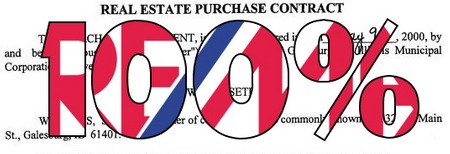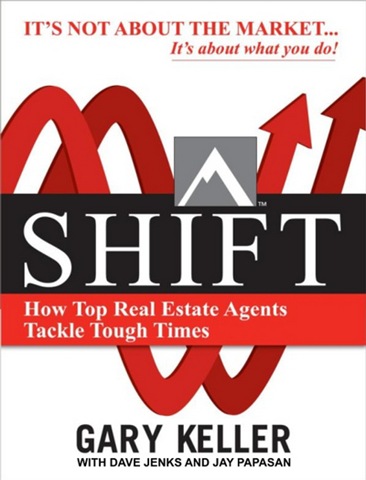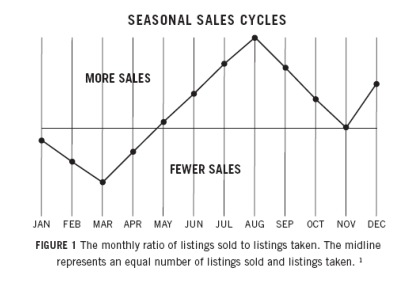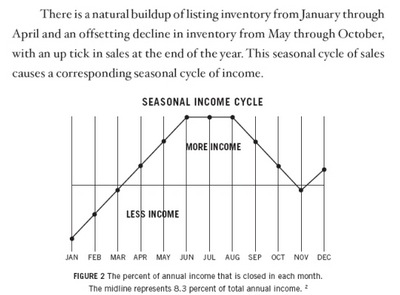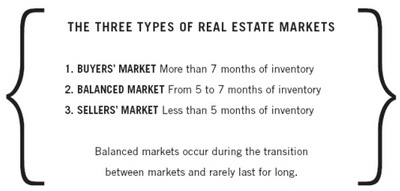Okay, so they’re not really all "100%". Re/Max is now a maximum of a 95% split. Further, most of the 100% companies have various other more traditional splits (IE: 70 – 30) for those who can’t pay the standard monthly bill. But the overall trend for the industry is that most "mega agents" wind up at a 100% company and many of the major marque agents wind up eventually even leaving Re/Max to start their own company. Re/Max was, at one time, the most agent-centric company in the business. That has changed a bit. Now at their national conventions the only "approved" business coach is Brian Buffini. The others, who used to be quite visible ( Mike Ferry, Howard Brinton, to name a few) at those conventions are no longer welcome. Only Buffini. I am just guessing that someone named Brian Buffini pays a specific amount of what he can collect from Re/Max agents to Re/Max International. That one is just a guess, but there was no guess work involved when Re/Max sued First American last April. First American backed out of the deal and stopped payments. The lawsuit from Re/Max prompted a probe from the Colorado Real Estate Department looking into the possibility of a HUD kickback violation.
Actually, I don’t think they did actually violate the law. But I have to say I loved their defense: we were basically just selling a mailing list. We have a lot of agents, let’s pimp them out. This is from the company that revolutionized the residential brokerage business. Not very revolutionary, is it?
___
The 100% concept was started by a very remarkable man named Dale Rector. He was a true visionary and he was the founder of Realty Executives. He made Realty Executives into a very successful company that for many years was the top selling company in all of Arizona. Prior to Re/Max, Dave Liniger worked for Dale Rector here in Phoenix and had been sent by Dale up to Denver to start a Realty Executives office there. Instead, Dave started Re/Max. A few years later he took it national. He successfully accomplished what Realty Executives never did: massive expansion on a global level. The real estate world would never be the same. Agents who could produce did not have to "give the broker half". They would pay the broker to be there (a desk fee) and pay their own expenses and keep all of what they earned. Dale Rector’s original dream had become a reality for agents all across the nation and eventually, most of the world. But it was Dave Liniger who made that dream a reality.
__
Anytime anyone discovers or develops anything that could be a meaningful advantage in business it does not take long until someone else comes along with a knock off version, usually for less money. Real estate brokerage offices are no exception. By the mid 70’s, when Re/Max was just getting going and Realty Executives was going strong a different kind of company started sprouting up all around the Phoenix area. Realty Executives / Re/Max knock offs. There were dozens and dozens of them. Some were very well run, others were very poorly managed and went out of business. The company I have been with for 31 years, John Hall & Associates was one of those "original knock offs". Less offered and less service to the agent but at a much lower price. In the early 80’s came the knock off – knock offs. West USA, was started by Clay Fouts. Clay started at John Hall about the same time I did, in 1978. He liked the idea of what John had done and saw that he could provide similar services for less. Clay’s original value proposition was simply having a lower price per month for agents than John Hall. When he started West USA he got several hundred of his original agents from John Hall. He took some from Realty Executives too. Eventually came the knock off of the knock off of the knock offs. Companies that would charge the agents $25 – $50 a month to hang their license and take a few hundred dollars out of each closing. These companies went on to pass West USA (West USA was the largest company in Arizona with about 2,000 agents) and there is now a company with well over 3,000 agents: HomeSmart. This business model is scalable and can be started just about anywhere.
If HomeSmart doesn’t eventually open an office in your city don’t worry. Someone like them or someone lifting their business model will eventually do just that. How can a brokerage firm make any money at $25 – $50 a month? Use your calculator to multiply that times, say 3,000. Add in the fact that they are not providing office space, a desk, phones, etc. and you can start to get the picture. Maybe they only have 200 – 300 agents they are collecting $200 a closing from and they are still quite profitable.
The competitive pressure these companies have put on "traditional brokers" with regard to commission splits has changed the landscape for all real estate companies here. For example – a little known fact – the two largest national 100% companies, Re/Max and Keller Williams charge agents considerably less in the Phoenix area than they charge elsewhere. For example a Re/Max agent here could pay around $600 a month without office space. That same set up in the San Francisco area would be about $1,600 a month. Watch that price drop once the knock off knock off knock offs are well known to the agents there.
The customers of the big brokers are not buyers and sellers. Buyers and sellers are the customers of the agents. The customer of the big broker is the agent. The brokers are in the agent acquisition and retention business. If successful, their expertise typically is limited and is solely in getting and keeping agents and avoiding lawsuits. They seldom even know much about the little detail of getting and keeping buyers and sellers – as they never did it very much. The skills required to be a successful agent and the skills required to be a successful broker are not the same skill set. There are a select few who have both skill sets but that is quite rare from what I’ve seen.
There are specific communities and areas where a company is so good at getting business that they can hire all the agents they want and dictate the commission splits. However, this is not the pattern in most areas. The pattern is typically that the company doing the most business has the most top producing agents. If those top producing agents left to go somewhere else their business would go right with them. So what is a brokerage company not making enough money to do? There are just a few choices: 1. cut back expenses, 2. close, 3. find a way to drive in business or 4. find a way to get more agents.
As almost all of the companies are completely inept at driving in business they are forced to choose options 1, 2 or 4. Option 4 is achieved by having a company agents would really like to affiliate with – so to survive they have to be really really great or really really inexpensive. The later is typically much easier to achieve.

